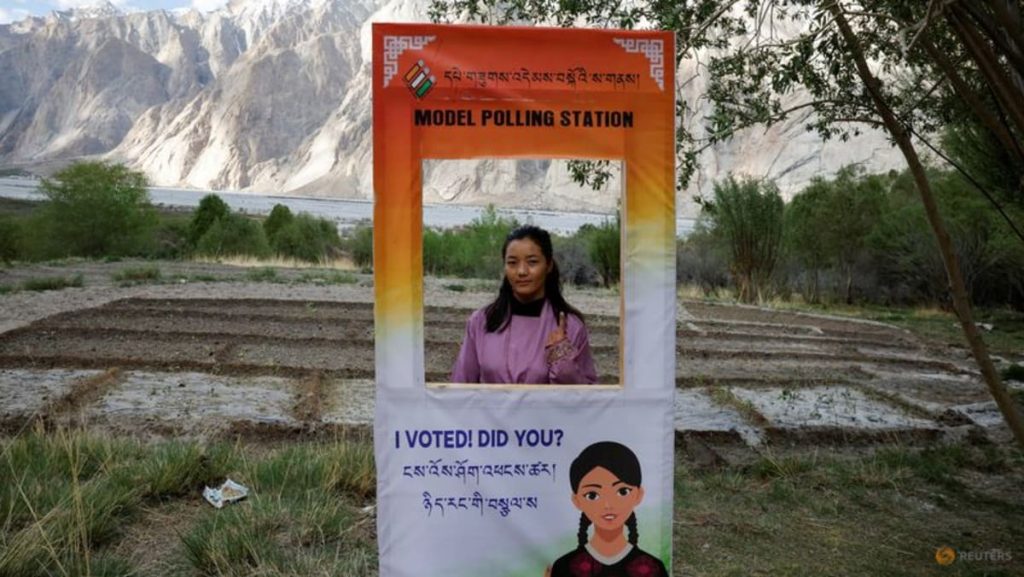Buddhist monks and Muslims in Ladakh, India, came out to vote in hopes of obtaining statehood and protection for their local culture within the predominantly Hindu nation of India. The region, located in the Indian Himalayas and bordering China and Pakistan, is home to almost equal numbers of Muslims and Buddhists, making it one of the least Hindu places in the country. Despite their demands, the government led by Prime Minister Narendra Modi has yet to address their requests.
During the recent elections, voters, including Buddhist monks in traditional ochre robes, lined up at polling stations in Leh, the main town of Ladakh. The landscape of Leh is characterized by snow-capped mountains, contrasting with the heatwave currently affecting much of India. The presence of Buddhist monasteries and memorials to fallen soldiers serves as a reminder of the region’s highly militarized status, especially after a border conflict with China in 2020.
Formerly part of the semi-autonomous state of Jammu and Kashmir, Ladakh has long sought its own legislature, constitutional safeguards for its culture, and environmental protections. The dissatisfaction among locals is evident, with one resident expressing concern over the government’s actions that have negatively impacted Ladakh. Modi’s government reorganized Ladakh as a union territory separate from Indian-administered Kashmir in 2019, leading to heightened expectations for increased rights among the Buddhist population. However, the promise to include Ladakh in the Sixth Schedule of India’s constitution, safeguarding indigenous tribal rights, remains unfulfilled.
The candidates vying for the seat in Ladakh, all representing Modi’s Bharatiya Janata Party, have pledged to work towards securing Sixth Schedule status to protect the region’s culture and land. One Muslim voter, Umila Bano, emphasized the importance of this designation for Ladakh, expressing hope that the chosen candidate will actively pursue this goal. The sentiment among voters, including both Buddhists and Muslims, is unified in their desire for constitutional protections that would ensure the preservation of their unique cultural identity within India’s diverse social landscape. Despite continued government inaction, the people of Ladakh remain steadfast in their pursuit of statehood and cultural preservation.
In the midst of ongoing political struggles, the unity among the diverse religious communities of Ladakh serves as a testament to their shared goal of achieving statehood and cultural protection. The turnout of Buddhist monks alongside Muslim residents at polling stations highlights the collective effort to bring attention to their demands and push for legislative changes that would safeguard their way of life. As the region grapples with the aftermath of political restructuring and ongoing uncertainty, the resilience and determination of Ladakhis in advocating for their rights and cultural heritage remain unwavering.
The intersection of religion, politics, and identity in Ladakh underscores the complex dynamics at play within this diverse region. The call for statehood and constitutional safeguards reflects broader socio-political challenges faced by minority communities seeking recognition and autonomy within the hegemonic structures of the Indian state. The power dynamics between the central government and regions like Ladakh highlight the ongoing struggles for representation and self-determination, underscoring the importance of grassroots mobilization and collective action in advocating for change. Ultimately, the elections in Ladakh serve as a platform for marginalized voices to be heard and for demands for statehood and cultural preservation to be addressed at a national level.


